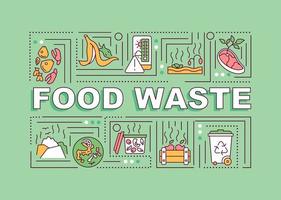Food waste, yes you do waste food. We all throw away food for one reason or another. However, it is a major problem which should be tackled. Tackling climate change issues can be complex and overwhelming. As an individual, there are things you can do that can make a difference. It starts with the simplest thing you can do at home.
Up to 10% of global greenhouse gas emissions are linked to food waste. According to the latest Food Waste Index Report 2021 by the United Nations Environment Programme, out of 931 million tonnes of food waste produced, 61% was from households.
What is household food waste?
Household food waste is those random, expired, or spoiled items lurking in cabinets or your fridge. These include those slices of bread that have developed mould before you get to finish all of them!
What can you do?
Yes you can do your little bit. Planning meals is one of the most effective ways to reduce food waste. It will save you money on your food bills too. Planning does take a little bit of your time, but it will help avoid those unnecessary dilemmas during grocery shopping. That can lead you to overspend and produce more food waste at home.

There are 2 main ways to plan your meals:
- Check your cupboard and your refrigerator, then plan. Before you step outside, you should know the ingredients available in your cupboards and plan around this.
- Plan your meals around what you already have. Plan a ‘kitchen sink’ meal every week – meals that use up the leftover ingredients available in your kitchen. Unleash your creativity in cooking your meals! Among the easy dishes that can be cooked with random and mixed ingredients are stir fries, burritos, bowls, casseroles, wraps, and pastas.
These steps not only help to reduce food waste, but are an excellent way to add variety to your family menu. They help with weekly food budgeting.
You don’t need to create a meal plan for seven days with every meal cooked from scratch . You are sure that there will be leftovers some days.
Other tips to eliminate food waste:
- Make your own recipe lists: Apparently, most households have around a few meals that they typically eat during the year. Draw up a list of your main meals and then make a shopping list for each. Build your store cupboard essentials around the list and try to incorporate some new recipes around these main meals.
- Leftovers: If you are making a weekly meal plan, do not plan on cooking every night. Plans change, leftovers are there to be eaten and be creative with the items available in your well-stocked cupboards.
- Family effort: If you have kids, involve them in planning the weekly meals. Keep in mind that they might have their own preferences, so it is very important to make them feel engaged in the process.
With the right steps and mindset, helping our planet can be fun and easy. The key to live sustainably is to shift our focus and effort on the things that we can do. Buying locally sourced ingredients, and incorporating more plant-based foods in your meal planning is indeed a step in the right direction. Food is costly too.
